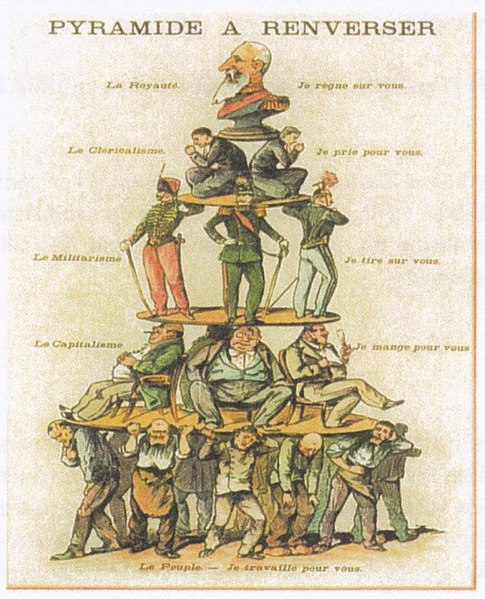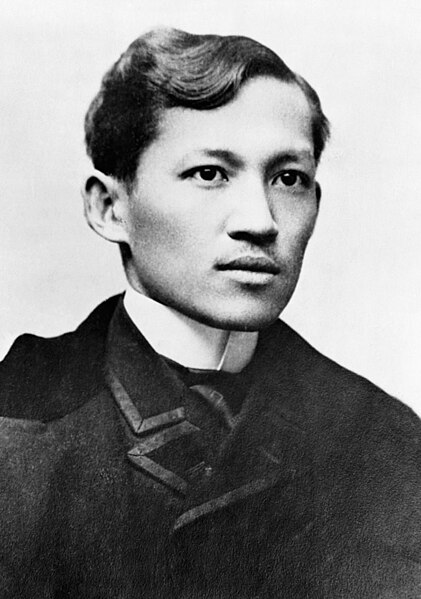In the social sciences, social structure is the aggregate of patterned social arrangements in society that are both emergent from and determinant of the actions of individuals. Likewise, society is believed to be grouped into structurally related groups or sets of roles, with different functions, meanings, or purposes. Examples of social structure include family, religion, law, economy, and class. It contrasts with "social system", which refers to the parent structure in which these various structures are embedded. Thus, social structures significantly influence larger systems, such as economic systems, legal systems, political systems, cultural systems, etc. Social structure can also be said to be the framework upon which a society is established. It determines the norms and patterns of relations between the various institutions of the society.
Pyramide à renverser - The poster shows a social stratification pyramid which symbolises class society. At the top we can see King Leopold II.
A society is a group of individuals involved in persistent social interaction or a large social group sharing the same spatial or social territory, typically subject to the same political authority and dominant cultural expectations. Societies are characterized by patterns of relationships between individuals who share a distinctive culture and institutions; a given society may be described as the sum total of such relationships among its constituent members.
Ant social ethology: Ants are eusocial insects. The social group enables its members to benefit in ways that would not otherwise be possible on an individual basis.
José Rizal, a theorist of colonial societies
San people in Botswana start a fire by hand.
Maasai men perform adumu, the traditional jumping dance.





